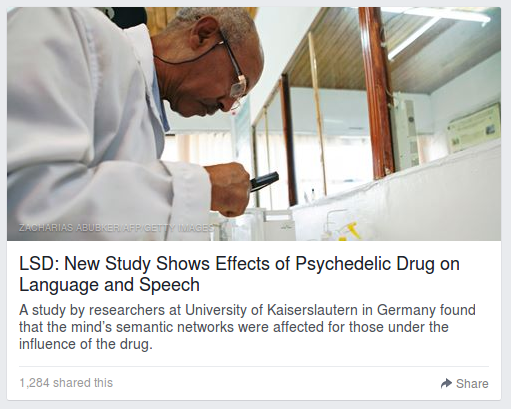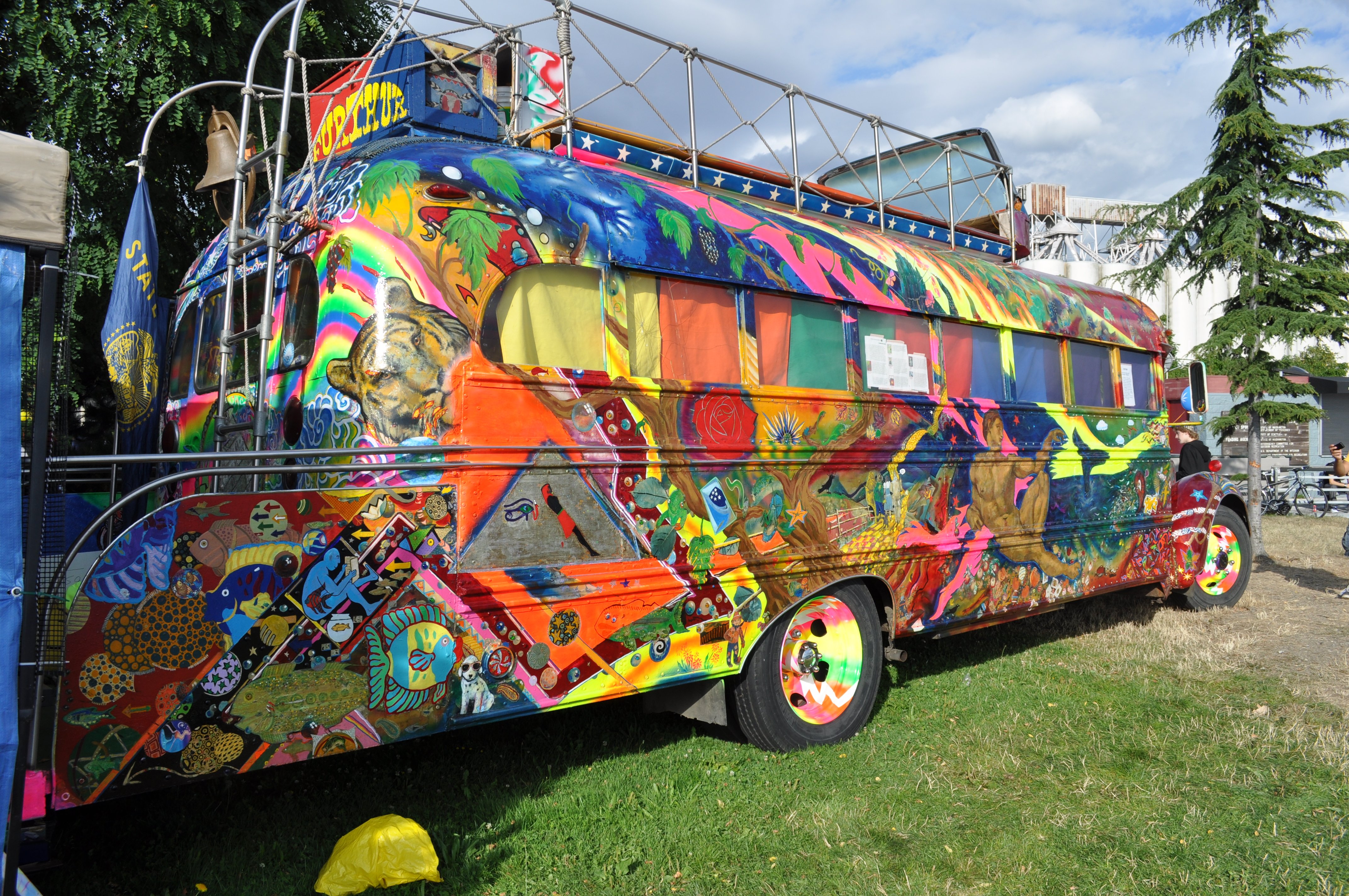Some New Research On LSD
I'm not sure that I've talked about it much on my blog here, but I love LSD.
It's not every day that LSD trends on Facebook. And hell, since discovering Steemit, it's not every day that I visit Facebook!
So when I got on Facebook today to send a friend of mine a message, I was excited to find that a piece of news based on a study of LSD was trending.

Yeah, No Shit!
Anybody who has taken a strong dose of LSD knows that it affects semantic networks.
But, I know scientists are in the business of stating the obvious at times. With that in mind, I pulled a few of the articles that people had posted.
"Results showed that while LSD does not affect reaction times," explains lead author Neiloufar Family, "people under LSD made more mistakes that were similar in meaning to the pictures they saw." For example, when people saw a picture of a car, they would accidentally say 'bus' or 'train' more often under LSD than under placebo. This indicates that LSD seems to effect the mind's semantic networks, or how words and concepts are stored in relation to each other. When LSD makes the network activation stronger, more words from the same family of meanings come to mind.
The results from this experiment can lead to a better understanding of the neurobiological basis of semantic network activation. Neiloufar Family explains further implication: "These findings are relevant for the renewed exploration of psychedelic psychotherapy, which are being developed for depression and other mental illnesses. The effects of LSD on language can result in a cascade of associations that allow quicker access to far away concepts stored in the mind."
(http://medicalxpress.com/news/2016-08-lsd-effects-language.html)
I wanted to add a little bit of context from the subjective experience of an experienced user.
Often times the wrong name for a thing will come to mind. And usually, as shown in the study, it will be a different thing of the same "type." In the example given by the lead scientist in the study, a car might be misidentified as a bus.
But what I want to point out is that people under the influence of substances such as LSD don't think cars are busses. If I could give an example of my own thought process.
That's a bus
Well, it's really a car. I said bus, but I know it's a car I just said the wrong word.
They're similar because they both get people places.
But busses get a lot more people places at once.
Also people pay for cars up front and then pay for gas as they go, but people pay for busses when they get on and it takes them where they go.
And people who have money tend to get cars, but people with less money hop on busses.

By now the scientist has flipped over to the next slide.
That's a cat!
Cats are so pretty!
No wait, it's a dog!
Long internal dialogue about the difference between dogs and cats.
And so on...
In my experience, psychoactive substances such as LSD and psiloscybin blur the lines in between things in such a way that we are able to gain insight into their similarities. On a practical level, it might seem like distinguishing a bus from a car is a pretty big deal... but allowing yourself the time to reflect on the role they play in our lives is important too.
Mostly I just thought it was cool that the news was talking about LSD, but one thing kind of bugged me.
Rawstory picked up the study, and for some reason inserted the following:
It is colorless and odorless but has a slight bitter taste.
Emphasis is my own... because that's absolutely false. LSD is actually tasteless. Any taste that one might experience when taking LSD are due to either impurities and byproducts of the production process, which are nearly nonexistent when produced by a skilled chemist.
I don't see why journalists feel the need to insert this kind of thing... but I digress...
